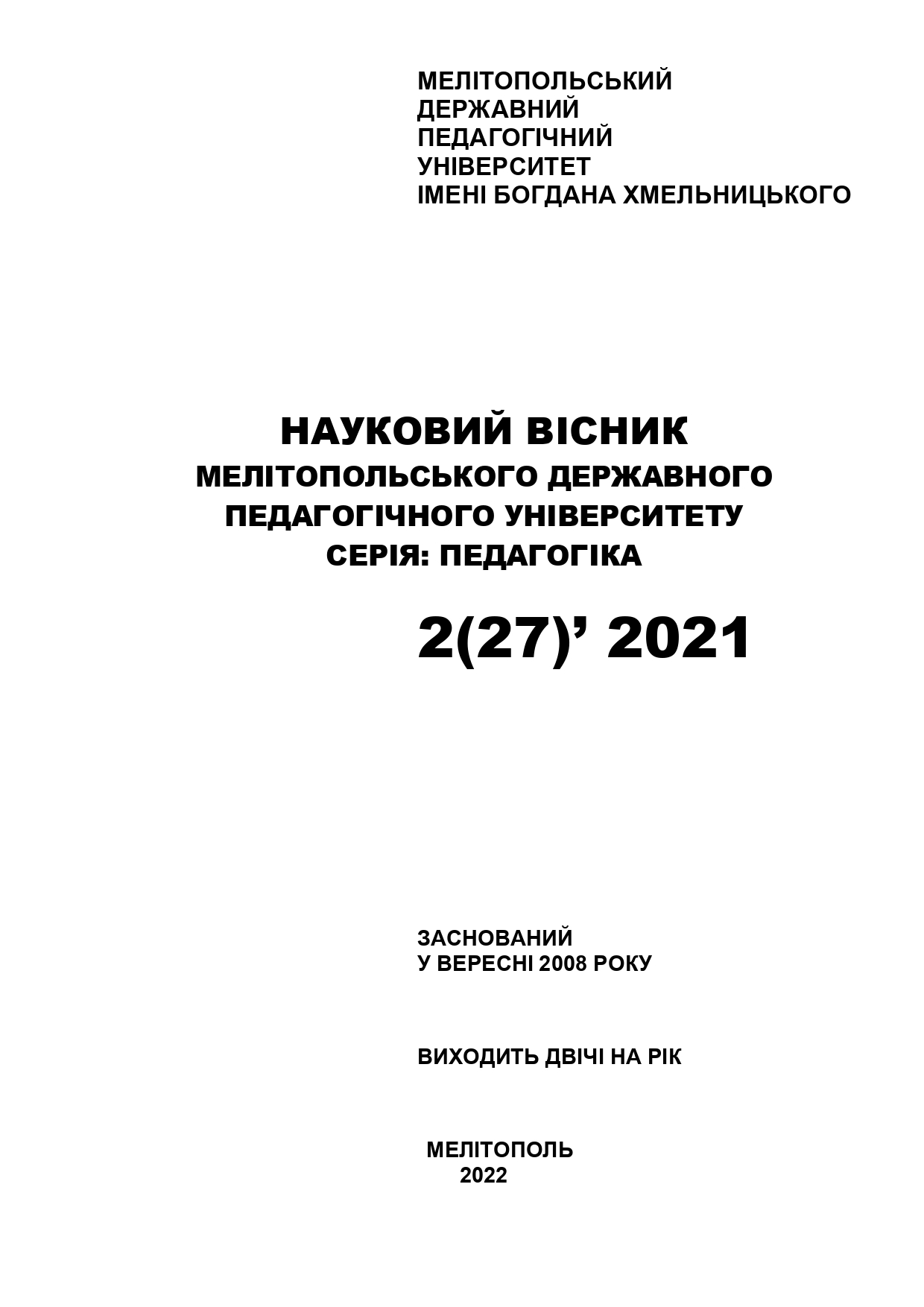Formation of the value of moral autonomy of adolescents as a scientific and pedagogical problem
Abstract
The article offers a review of the scientific literature, which provides an understanding of the value of moral autonomy of adolescents. We focus on scientists' perceptions of both positive (self-development, self-realization, selfefficacy, etc.) and negative (according to K. Langfred – «cognitive distraction», «lost learning / incorrect judgment») consequences of personal autonomy, as a two-way approach to consideration of phenomena helps to form a holistic view of them. We consider various studies (philosophical, legal, psychological, pedagogical), in which morality and autonomy are combined into a separate construct, which allows us to understand its basic components, understand the relationships between individual concepts, consider its levels (intrapersonal etc.), to present the psychological mechanisms of autonomy development (according to M. Yatsyuk, - internalization, externalization, “I” reflection, autonomy). It is proved that moral autonomy is realized through free choice of moral decision at realization of own purposes. The problems of adolescents who do not give the opportunity to make and implement their own moral decisions are demonstrated. The author emphasizes that the degree of realization of a moral decision depends on three factors, namely: level of health, conditions of study and living, individual capabilities. We emphasize the importance of the problem of forming the value of moral autonomy of adolescents in this age period, because it is at this age that the basis for its intensive development - the formation of the need to be autonomous- is formed. The article presents the concepts related to moral damage caused to people during the violation of their life plans due to moral pressure, threats and the use of force. We conclude that the formation of the value of moral autonomy of adolescents should include special training based on the processes of development of moral thinking. The article proposes a working definition of the concept of «moral autonomy», emphasizes the importance of moral autonomy as an intangible, spiritual value that affects the lives of individuals and society as a whole.




